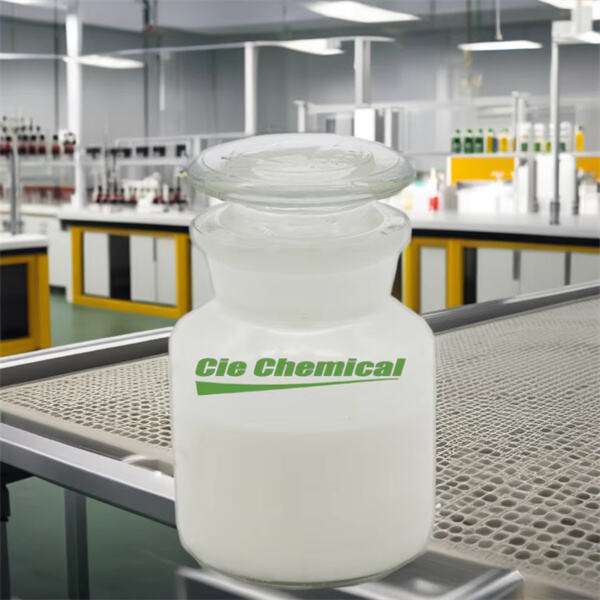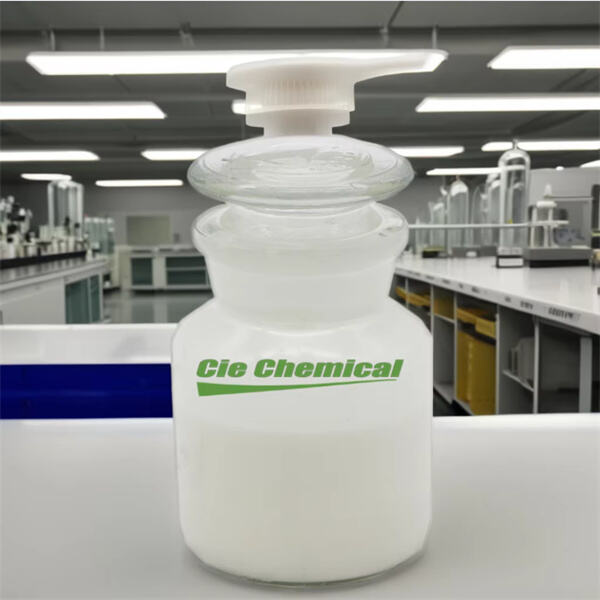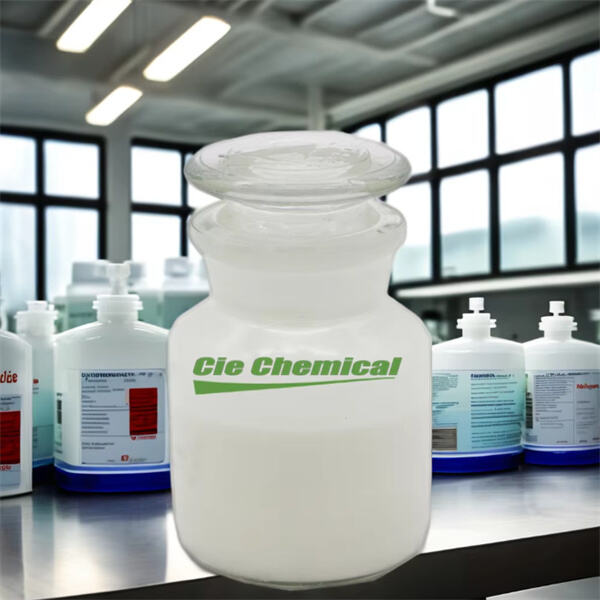Salut les enfants ! Dans ce post, nous allons parler de régulateur de croissance végétale nOTE DE L'ÉDITEUR : Vous ne connaissez peut-être pas ce terme, mais il est essentiel pour nous afin d'éviter que les nuisibles n'envahissent nos maisons et nos jardins. Le fipronil — un choix populaire aussi bien chez les opérateurs de lutte antiparasitaire professionnels que dans le commerce de détail pour lutter contre ces insectes nuisibles difficiles à éliminer. Alors, qu'est-ce que le fipronil, comment fonctionne-t-il et pourquoi devrions-nous nous en soucier ? CIE Chemical est là pour éclairer les aspects essentiels du fipronil — les bases que chaque consommateur devrait connaître sur cette pièce à deux faces qu'on appelle insectes nuisibles. Alors, asseyez-vous bien et apprenez avec moi !
Le fipronil est un insecticide d'une classe unique, conçu avec une structure personnalisée pour neutraliser les insectes. Beaucoup l'utilisent pour éloigner les nuisibles des maisons, des jardins et des fermes. Ce produit chimique est optimal car il cible le système nerveux des insectes. Leur système nerveux est la centrale de contrôle du mouvement chez les insectes. Lorsque les insectes entrent en contact avec le fipronil, ils absorbent ce poison qui se répand ensuite dans tout leur corps. Ils ne peuvent plus se déplacer correctement et finissent par mourir. Il est donc très efficace pour tuer ces nuisibles qui peuvent détruire les plantes, provoquer des maladies ou devenir gênants pour les humains.
Comme pour tout produit chimique, désherbants au glyphosate a ses avantages et ses inconvénients. L'avantage est qu'il fait un très bon travail pour éliminer les nuisibles et empêcher qu'ils ne deviennent gênants. C'est encore plus vrai pour les agriculteurs qui veulent protéger leurs cultures des insectes qui peuvent les manger ou les endommager. Plus de nourriture pour tous grâce à des plantes en bonne santé ! La mauvaise nouvelle : le fipronil peut nuire à d'autres animaux (surtout les oiseaux, mais aussi les poissons et les mammifères) s'ils l'ingèrent accidentellement. Le fipronil peut rendre gravement malade un animal domestique ou sauvage qui le mange. Mais lorsqu'il n'est pas utilisé correctement ou qu'il entre dans la nourriture ou l'eau, il pourrait être nocif pour les personnes, c'est pourquoi nous devons le gérer avec soin.

L'utilisation excessive et abusive de l'insecticide fipronil peut nuire gravement à l'environnement. Le produit chimique peut pénétrer dans le sol et les sources d'eau lorsqu'il est pulvérisé sur les plantes, endommageant ainsi d'autres plantes et animaux dans ces zones. Si le fipronil parvient dans un cours d'eau, il peut affecter les poissons et autres organismes vivant dans cet habitat. Il peut également entrer dans la chaîne alimentaire, où les insectes qui consomment la substance chimique sont ensuite mangés par d'autres animaux — et c'est là que cela devient problématique pour ces animaux. C'est pourquoi il est si important d'utiliser l'insecticide au fipronil uniquement lorsque cela est absolument nécessaire et avec le plus grand soin.

Pour rester en sécurité lors de l'utilisation de l'insecticide à base de fipronil, il est nécessaire d'apprendre comment il doit être utilisé. Apprenez à manipuler ce produit de manière sécurisée. Autrement dit, il faut porter des gants et des lunettes de protection lors de l'utilisation de ce produit chimique pour éviter tout effet nocif sur vous. De même, il est essentiel de suivre les instructions figurant sur l'étiquette. Cela inclut, entre autres, la quantité à utiliser et la fréquence d'utilisation du produit chimique. Plus important encore, ne laissez pas l'insecticide au fipronil accessible aux enfants et aux animaux de compagnie. Nous ne voulons pas qu'il se produise des incidents qui pourraient survenir s'ils y avaient accès.

Mais, si vous êtes préoccupé par les dangers de l'utilisation de l'insecticide fipronil, alors pas besoin de s'inquiéter ! D'autres méthodes sûres et efficaces existent pour éloigner les nuisibles. L'une des options est d'utiliser des remèdes naturels. Il y a des répulsifs naturels comme le spray à l'ail ou l'huile de néem que certaines personnes utilisent, qui sont écologiques. Agents de Contrôle Biologique : Une autre option est d'utiliser des agents de contrôle biologique, des insectes amicaux qui mangent les nuisibles - escargots, limaces et/ou limaces, coccinelles, mantes religieuses. Ils ne sont pas nocifs pour les plantes et les animaux ; Vous pouvez également maintenir une bonne hygiène et un bon entretien à la maison. Cela signifie essentiellement garder une maison propre et sèche, boucher toutes les fissures dans votre fondation ou les ouvertures où les nuisibles peuvent entrer dans la maison, et jeter les restes de nourriture. Ce qui empêche les nuisibles d'entrer en premier lieu.
1. Augmentation de la production : Les pesticides peuvent contrôler efficacement les ravageurs, les maladies et les mauvaises herbes, réduisant ainsi les niveaux de nuisibles, augmentant les rendements et assurant la sécurité alimentaire. 2. Économie de main-d'œuvre et de temps : L'utilisation de pesticides peut réduire les coûts en main-d'œuvre et en temps pour les agriculteurs, améliorant efficacement l'efficacité de la production agricole. 3. Garantie des bénéfices économiques : Les pesticides peuvent prévenir le SIDA, assurer les récoltes et apporter d'excellents bénéfices économiques dans la production agricole. 4. Assurer la sécurité et la qualité alimentaire : Les pesticides peuvent garantir la sécurité et la qualité des céréales et des aliments, éviter la survenue des épidémies et protéger la santé des populations.
Dans le monde de la CIE, vous trouverez une excellente fabrication d'agrochimiques et des services techniques, car nous nous concentrons sur les produits chimiques et la recherche de nouveaux produits pour les populations du monde. Au début du 21ème siècle, notre usine se concentrait uniquement sur les marques nationales. Après plusieurs années de développement, nous avons commencé à explorer les marchés internationaux, tels que l'Argentine, le Brésil, le Suriname, le Paraguay, le Pérou, l'Afrique, l'Asie du Sud, etc. En 2024, nous avons établi des relations commerciales avec des partenaires de plus de 39 pays. En même temps, nous serons déterminés à apporter davantage de bons produits dans encore plus de pays.
Shanghai CIE Chemical Co.,ltd. a été fondée le 28 novembre 2013. CIE se concentre sur les exportations de produits chimiques depuis environ 30 ans. En même temps, nous serons dévoués à apporter plus de bons produits dans plus de pays. De plus, notre usine a une capacité annuelle de production de glyphosate d'environ 100 000 tonnes et d'acétochlor d'environ 5 000 tonnes. De plus, nous collaborons également avec certaines entreprises multinationales pour produire du paraquat et de l'imidaclopride. Par conséquent, notre qualité est de classe mondiale. Actuellement, les formes galéniques que nous pouvons produire incluent SL, SC, OSC, OD, EC, EW, ULV, WDG, WSG, SG, G, etc. En même temps, notre département R&D s'engage toujours dans le développement de nouvelles formules pour produire certains produits chimiques mélangés selon les besoins du marché. De cette manière, l'efficacité de nos nouveaux produits peut répondre aux besoins des consommateurs finaux dans le monde entier. Nous considérons toujours cela comme notre responsabilité. De plus, jusqu'à présent, nous avons soutenu l'enregistrement de plus de 200 entreprises dans 30 pays dans le monde. En même temps, nous effectuons des rapports GLP pour certains produits.
Les produits pesticides que nous vendons sont conformes aux réglementations et normes nationales en vigueur. Nous assurons la fiabilité et la stabilité de la qualité des produits. 1. Conseil prévente : Nous offrons aux clients un service de conseil professionnel avant-vente pour répondre à leurs questions concernant l'utilisation, la dose, le stockage et d'autres problèmes relatifs aux vêtements et aux médicaments. Les clients peuvent obtenir notre aide par téléphone, e-mail ou consultation en ligne avant l'achat. 2. Formation après-vente : Nous organisons régulièrement des formations sur l'utilisation des pesticides, y compris leur utilisation correcte, les précautions à prendre, les mesures de protection, etc., afin d'améliorer les compétences et la sensibilisation des clients en matière d'utilisation des pesticides. 1/3 3. Visites après-vente : Nous effectuons des visites après-vente régulières auprès de nos clients pour comprendre leur utilisation et leur satisfaction, recueillir leurs avis et suggestions, et améliorer continuellement nos services.